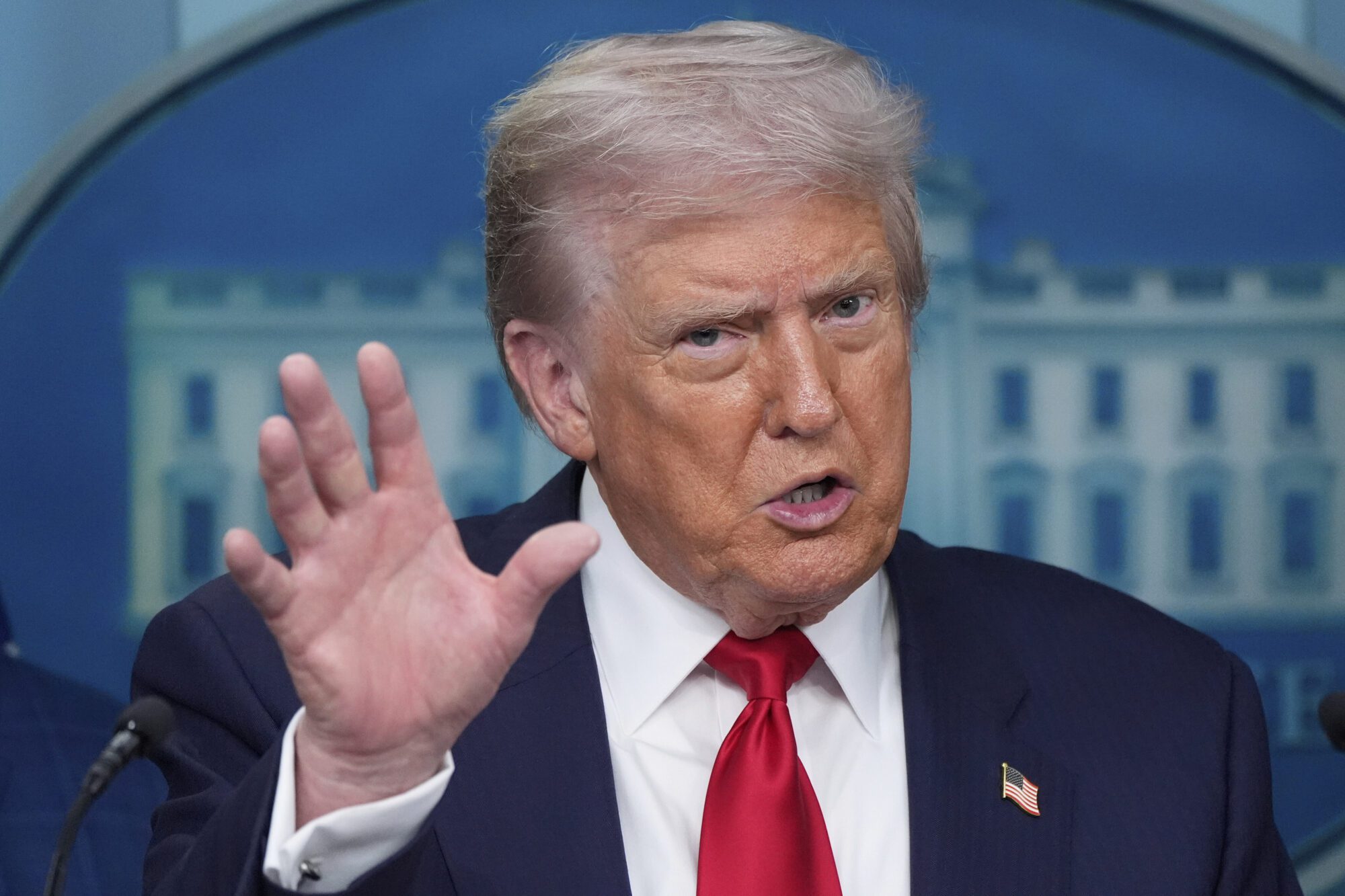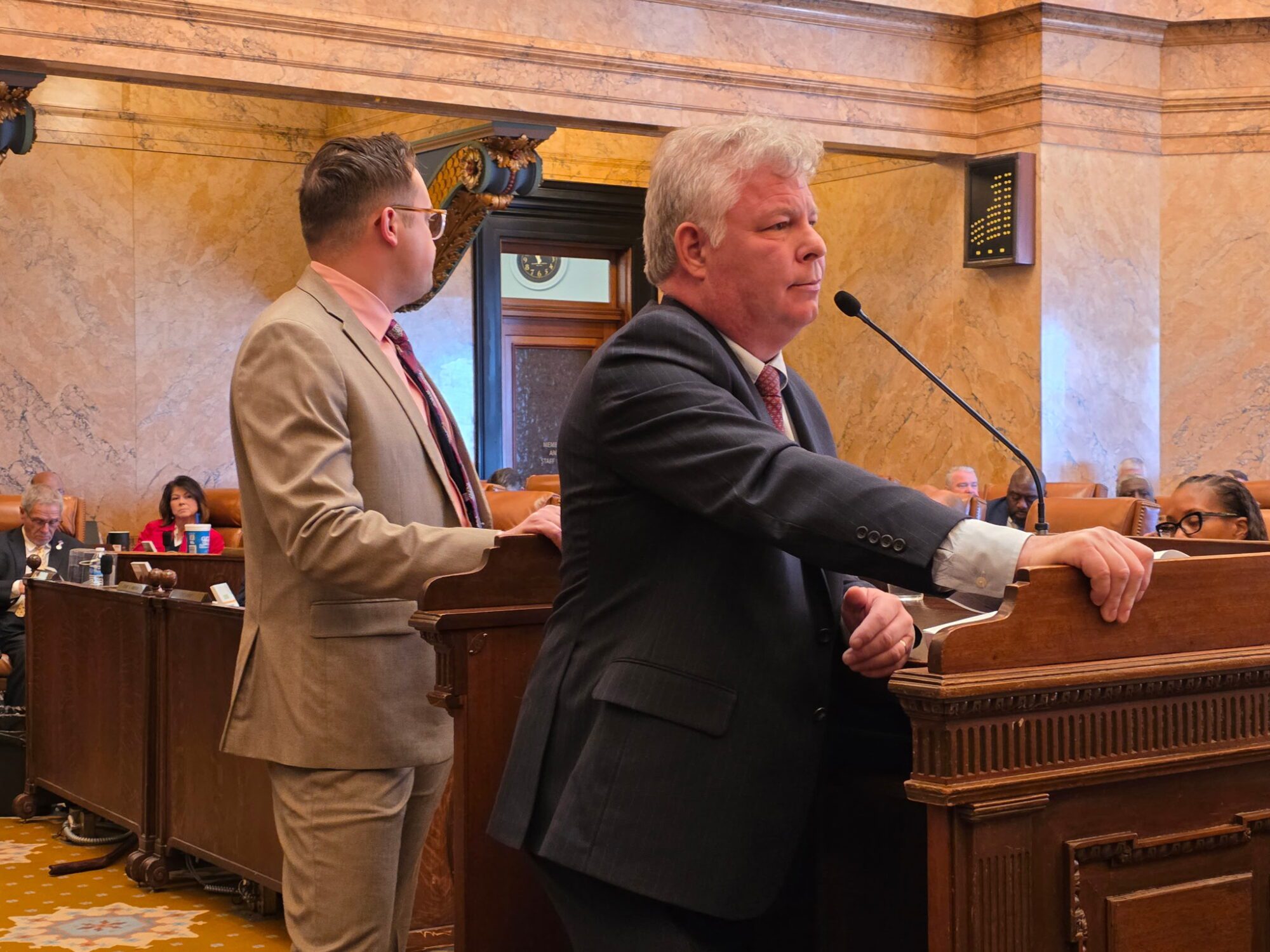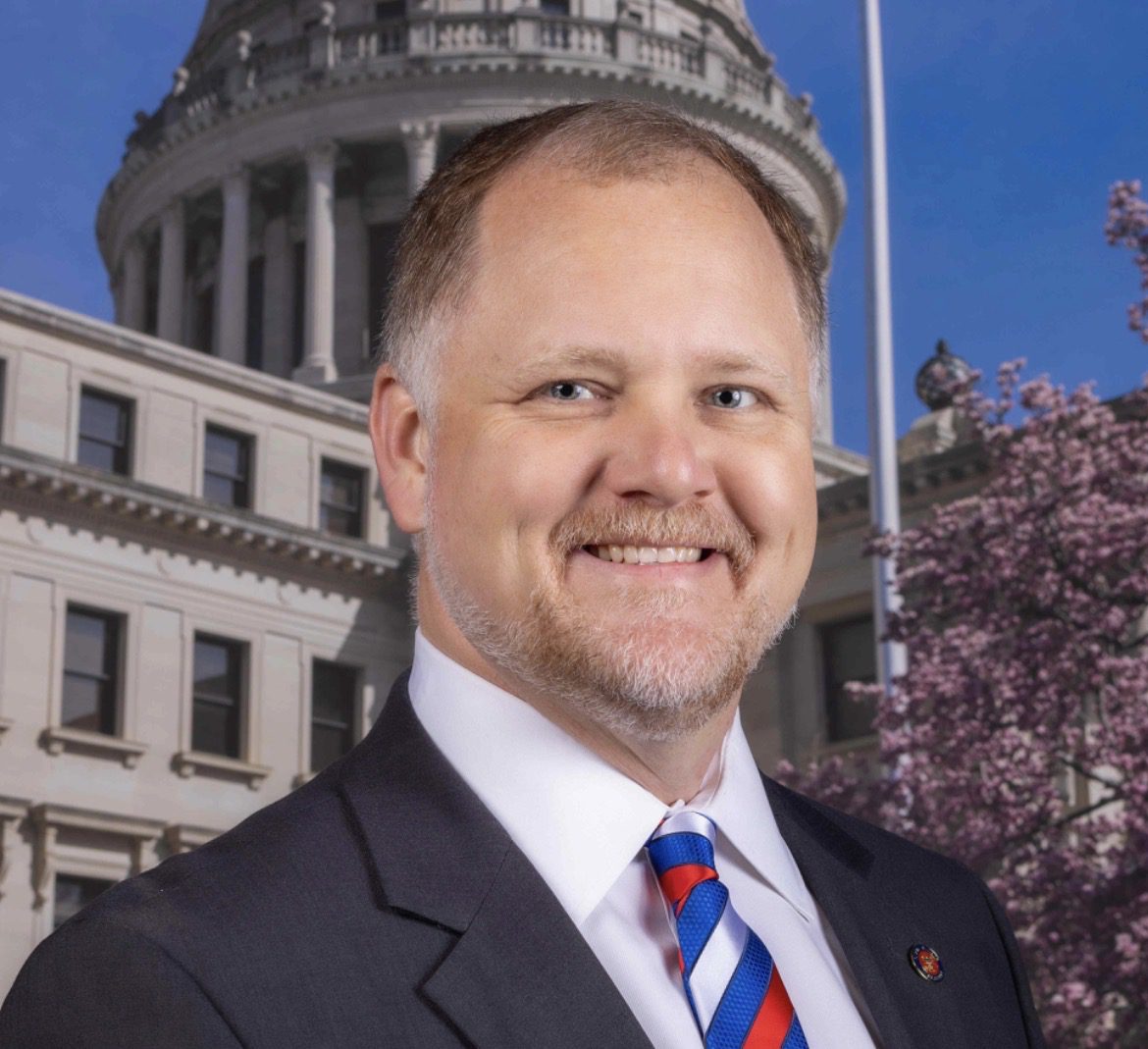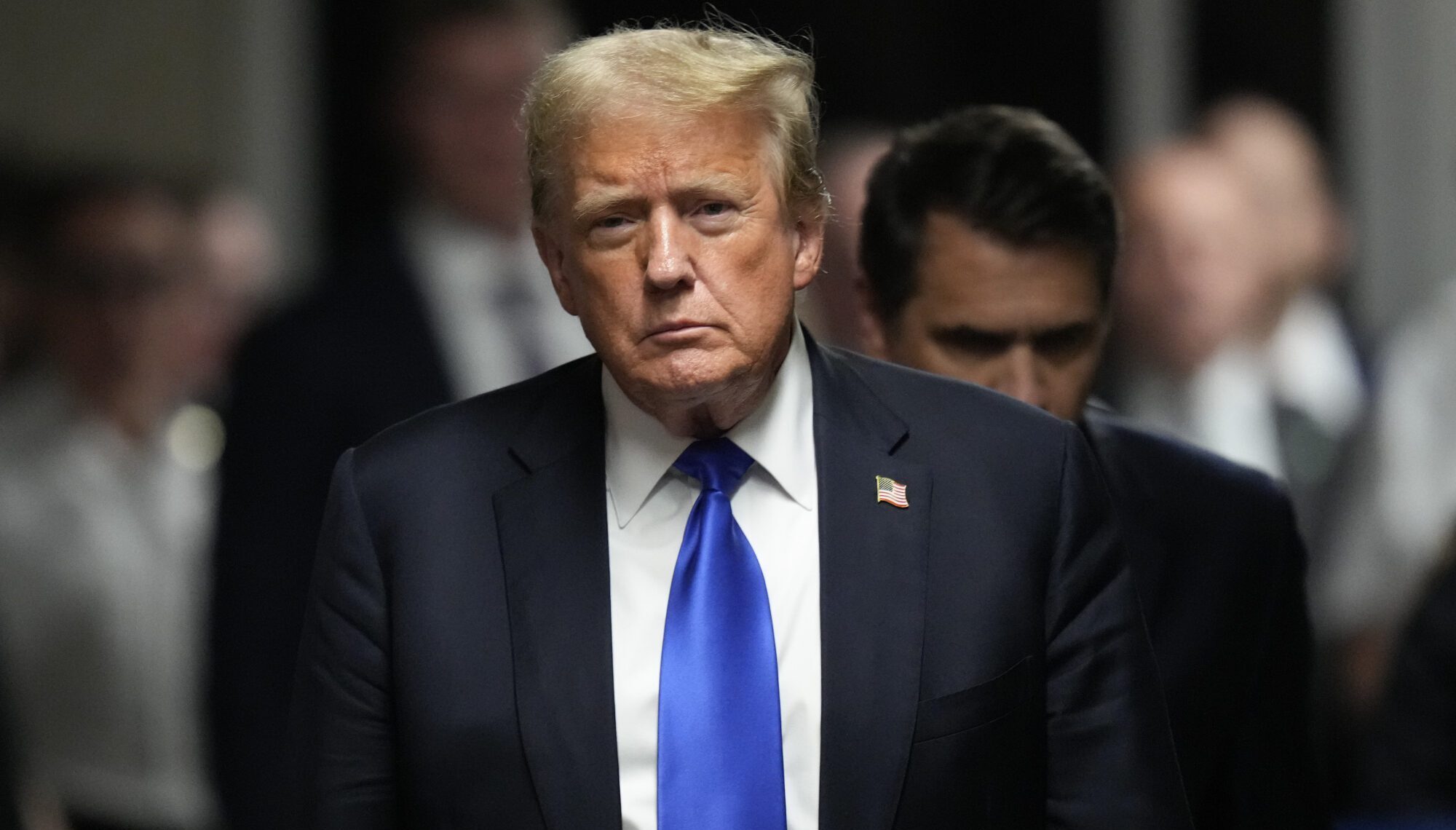
Former President Donald Trump walks to make comments to members of the media after a jury convicted him of felony crimes for falsifying business records in a scheme to illegally influence the 2016 election, at Manhattan Criminal Court, Thursday, May 30, 2024, in New York. (AP Photo/Seth Wenig, Pool)
- Criticisms of Thursday’s verdict against former President Donald Trump on 34 felony counts of falsifying business records are not without merit. Here’s why.
I’ve never done yoga (shocker), but I hear it requires flexibility. Don’t let his stature fool you, Manhattan District Attorney Alvin Bragg loves a good stretch. Bragg ran for his post with Donald Trump in his sights. On Thursday, the Soros-funded prosecutor got his man on the back of a novel legal theory that turned a 7-year old private bookkeeping discrepancy into 34 felonies.
Judge Juan Merchan, whose own political activity includes a donation to President Joe Biden and to an organization simply named “Stop Republicans,” set a sentencing date just four days prior to the beginning of the Republican National Convention, where Trump is expected to be named the Party’s nominee for president.
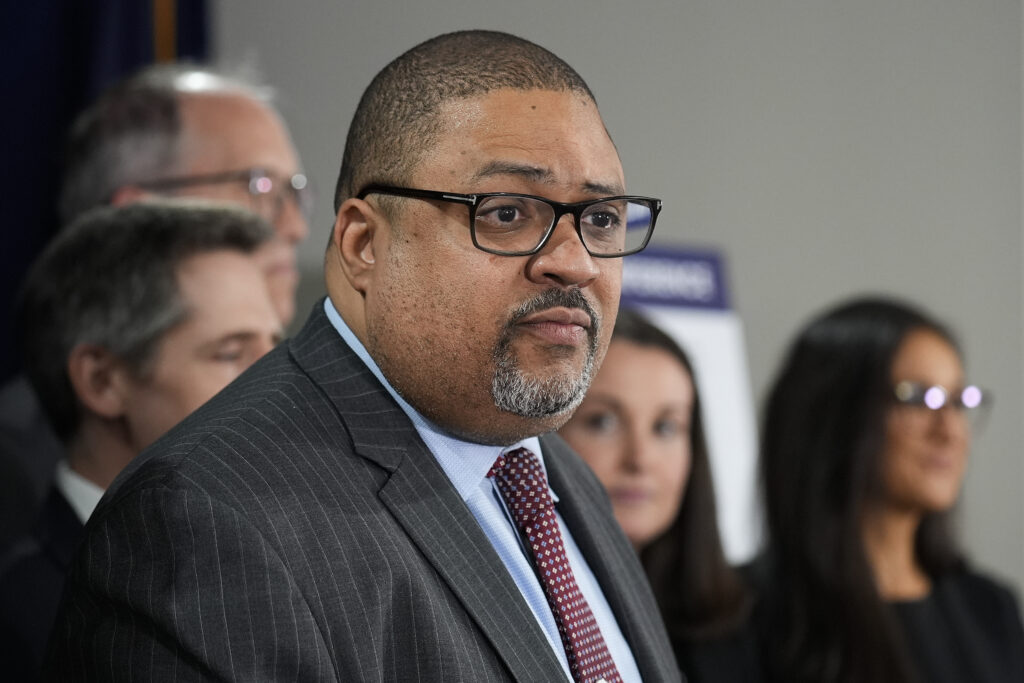
A predictable cacophony of celebration and teeth gnashing followed the verdict, largely along partisan lines. But love, hate, or find yourself conflicted on the brash real estate mogul turned politician, there are real reasons to question Trump’s New York prosecution and the fairness of the process that brought about his conviction.
BACK TO THE BEGINNING
Unfortunately, few people opining on the case understand the facts and law at play. For most, it comes down to either “Go, MAGA!” or “Orange Man Bad!” But it’s not that simple. Below is a timeline of events to help understand the case before delving into the potential legal defects.
- 2006: Alleged sexual encounter with Stephanie Clifford, who performs as an adult actress under the name Stormy Daniels. Donald Trump has consistently denied that the sexual encounter took place.
- October 2016: Audio leaks of Trump and Billy Bush having a lewd, sexual conversation about women. Two women, Daniels and Karen McDougal, emerge with stories about sexual encounters with Trump. Trump attorney Michael Cohen takes out home equity loan and pays Daniels $130,000 in exchange for non-disclosure agreement.
- January 2017-December 2017: Cohen sends 11 legal invoices totaling $420,000 to Trump Organization. Allegedly incorporated into these invoices is the $130,000 paid to Daniels. 12 internal entries are made on accounting software classifying these invoices as “legal expenses.” Trump sends Cohen 11 checks, two from a trust fund and the rest from a personal account. None of the payments are made by the Trump campaign. These 34 documents make up the 34 counts alleged for falsifying business records.
- January 2018: The Wall Street Journal reports a tip that the payment had been made to Daniels. Daniels releases statement denying that she had a sexual encounter with Trump.
- February 2018: The New Yorker breaks the story of McDougal. McDougal had been paid by The National Enquirer for the rights to her story. The Enquirer, run by Trump’s friend David Pecker, shelved the story. Michael Cohen testifies before Congress that he paid Daniels with his own money and had not been reimbursed by Trump.
- March 2018: Daniels recants her denial of the sexual encounter.
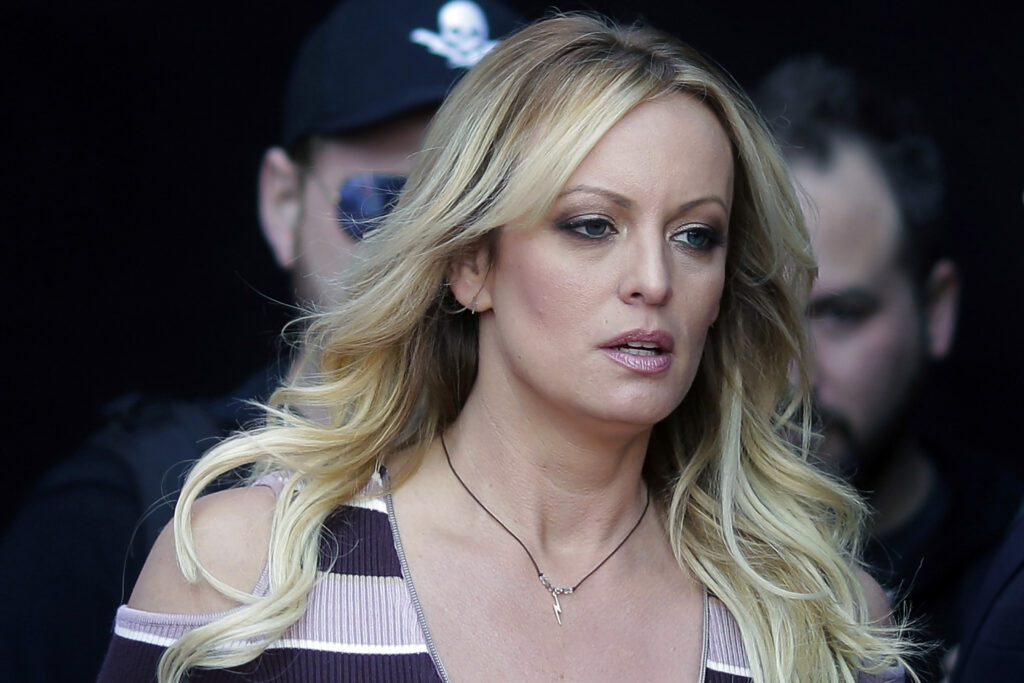
- August 2018: Cohen pleads guilty to charge that payments to Daniels was an unreported campaign contribution to Donald Trump’s presidential campaign and that it exceeded the contribution limit. The Federal Election Commission considers and declines to prosecute Donald Trump. The FEC had lost a similar case against former Democratic U.S. Senator and candidate for president John Edwards six years prior.
- December 2018: Donald Trump characterizes the payment to Daniels as a “simple private transaction” and says it “wasn’t a campaign contribution.”
- November 2021: Manhattan District Attorney Alvin Bragg elected.
- December 2022: United States Associate Attorney General Matthew Colangelo leaves role as the No. 3 attorney in the Biden Department of Justice to join the Manhattan District Attorney’s office. It is announced Colangelo will handle the “Office’s most sensitive and high-profile white-collar investigations.” Colangelo reportedly took a considerable pay cut.
- January 2023: Grand jury begins hearing testimony in Manhattan on falsification of business record charges. Colangelo is lead prosecutor on the case.
- March 2023: More than 5 years after the last payment to Cohen, Trump indicted for 34 counts of falsification of business records by Bragg in Manhattan. Trump’s indictment marks first time an obscure state election law and an alleged federal election law violation are used to enhance a falsification of business records misdemeanor charge to felony. Trump, however, is not formally charged with or prosecuted for any state or federal election law violation.
- May 2024: After five week trial, jury begins deliberation. Judge Juan Merchan instructs jury that it need not be unanimous on what the “unlawful means” was for the second crime that permitted the elevation of the charges from misdemeanor to felony. Trump convicted on all 34 counts.
ALLEGED BIAS
Why do critics allege bias in Trump’s Manhattan prosecution? A look at some of the key players who helped shape the legal theory behind Trump’s prosecution and framing of the case for the jury might explain the concern:
- Alvin Bragg: When campaigning for DA, Bragg routinely touted prior litigation against Trump as proof of his ability to go after the former president if elected. So central was his criticism of Trump that Bragg’s Democratic Primary opponent Tali Farhadian Weinstein accused him of attacking Trump “for political advantage every chance he gets.” On May 8, 2021, Color of Change, a progressive advocacy organization, pledged to spend $1 million in support of Bragg’s candidacy. On May 14, 2021, George Soros made a $1 million donation to Color of Change. In the aftermath of the conviction, Soros’ son and heir to the throne, Alexander Soros said on X that “Democrats should refer to Trump as a convicted felon at every opportunity.”
- Matthew Colangelo: As Associate Attorney General, Colangelo was the No. 3 attorney in Biden’s Department of Justice. In December of 2022, it was announced that Colangelo would leave his esteemed national position and take a reduction in pay to join the Manhattan District Attorney’s office, where he would handle the “Office’s most sensitive and high-profile white-collar investigations.” Colangelo, a Democratic National Committee insider, assumed the role of lead prosecutor against Trump in Manhattan. His transition from Biden’s DOJ has raised questions about the involvement of Trump’s political rival for president in the prosecution.
- Judge Juan Merchan: Merchan made two small political contributions in 2020, in violation of New York’s Judicial Code of Ethics. One was to the presidential campaign of Joe Biden. The other was to an organization named “Stop Republicans.” The NY Commission on Judicial Conduct issued a warning to Merchan for the violations.
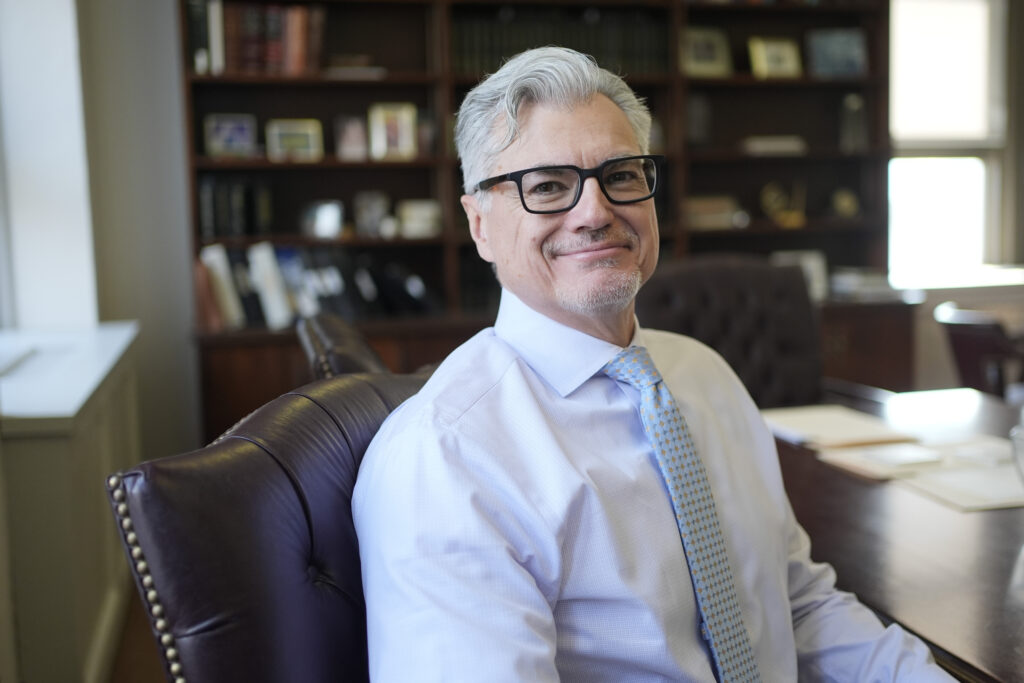
It bears noting that indicia of bias, by themselves, do not mean that the charges against Trump were bogus or that the jury’s verdict was wrong.
The appearance of impropriety, though, creates reasonable suspicion about selective prosecution and how the case was shepherded for the jury’s consideration.
MILLIONS ON MISDEMEANOR?
Before addressing the law in Trump’s case, it warrants saying what the case was not about. The case did not hinge on whether Trump had an affair with Daniels. Having sex with an adult film star (allegedly) while your wife is pregnant with your child is unseemly, but not illegal. The case was also not about non-disclosure agreements. NDAs are legal contracts that are commonly used to protect against disclosure of sensitive information.
What Donald Trump was charged with was falsification of business records, which as you might imagine involves entering false information on business records with the intent to deceive others. Each of the 34 counts was tied to a document. Those documents included:
- 11 legal invoices from attorney Michael Cohen totaling $420,000
- 12 entries on accounting software that characterize the invoices as “legal expenses”
- 11 checks from Donald Trump (not his campaign) paying the invoices
The prosecution’s argument is that these invoices, which included reimbursement to Cohen for the $130,000 NDA payment to Daniels, should not have been entered in the Trump Organization’s internal ledger as “legal expenses.”
There are three important points to understand with all 34 of these allegedly falsified business records. First, none of them were public documents. Second, all of them were created in 2017, after the 2016 election had already been decided. Third, under New York law, falsification of business records is typically a misdemeanor that involves proving false statements on business records with the intent to defraud.
This means the state of New York just spent millions of dollars prosecuting a former president for what normally would be a misdemeanor.
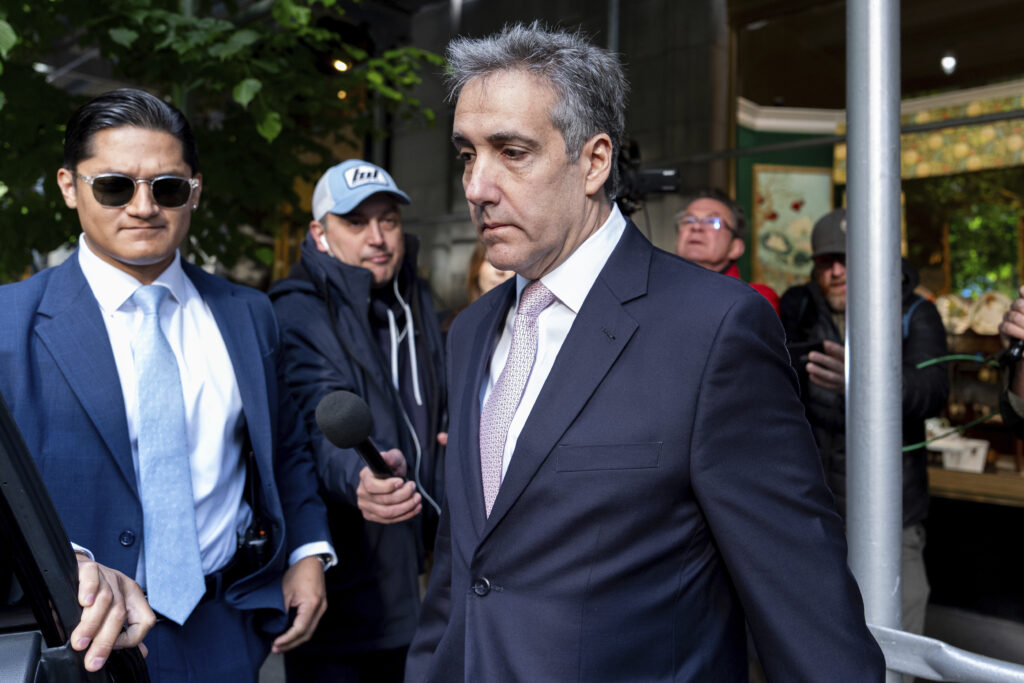
The U.S. Supreme Court has said intent to defraud requires proof of intent to deprive someone of money, property, or some other concrete good through deception. There was no evidence that Trump gained financially from the business records in dispute.
Prosecutors argued, instead, that under New York law intent to defraud can include purposefully misleading the government or voters. However, it is hard to understand how documents that were not public, and which neither the public nor the government. had any natural right to see could be evidence of intent to mislead the public. Donald Trump had no expectation these documents would ever be seen by anyone outside of his attorney and his business.
Finally, a thought on how “false” the private accounting entry was. The fact that the Daniels’ NDA reimbursement made up less than a third of the total Cohen invoices raises some question about whether short-handing the invoices as “legal expenses” was really inaccurate in the first place.
It also makes you wonder what would have been a permissible entry in the eyes of the state. If the Trump organization had entered “NDA payment” or “loan reimbursement,” it’s hard to see how he could have been prosecuted for falsifying the internal ledger. And if all that was required to evade this prosecution would be that slight of a change, then perhaps facing over 100 years in prison time for entering “legal expenses” instead is, how do you say it, extreme?
THE “SECOND CRIME” & UNLAWFUL MEANS
How does a misdemeanor become a felony?
To turn a misdemeanor falsification of business record into a Class E felony under New York law, the falsified business record needs to be used with the intent of aiding or concealing the commission of another crime.
Prosecutors said Trump’s “second crime” was the violation of New York statute prohibiting a person from conspiring to “promote or prevent the election of any person to a public office by unlawful means.” Leaning on this law essentially required proof of a third crime to satisfy the “unlawful means” element. Three possible “unlawful means” were proposed: (1) federal election interference; (2) falsification of bank records; and (3) tax violations.
In its closing argument, the state focused on alleged federal election interference. Judge Merchan instructed the jury that it did not have to agree on which of the three theoretical unlawful means Trump used. They just had to agree he had engaged in one of the three.
It’s important to note that the Federal Election Commission considered whether to bring campaign finance charges against Donald Trump, but declined to do so.
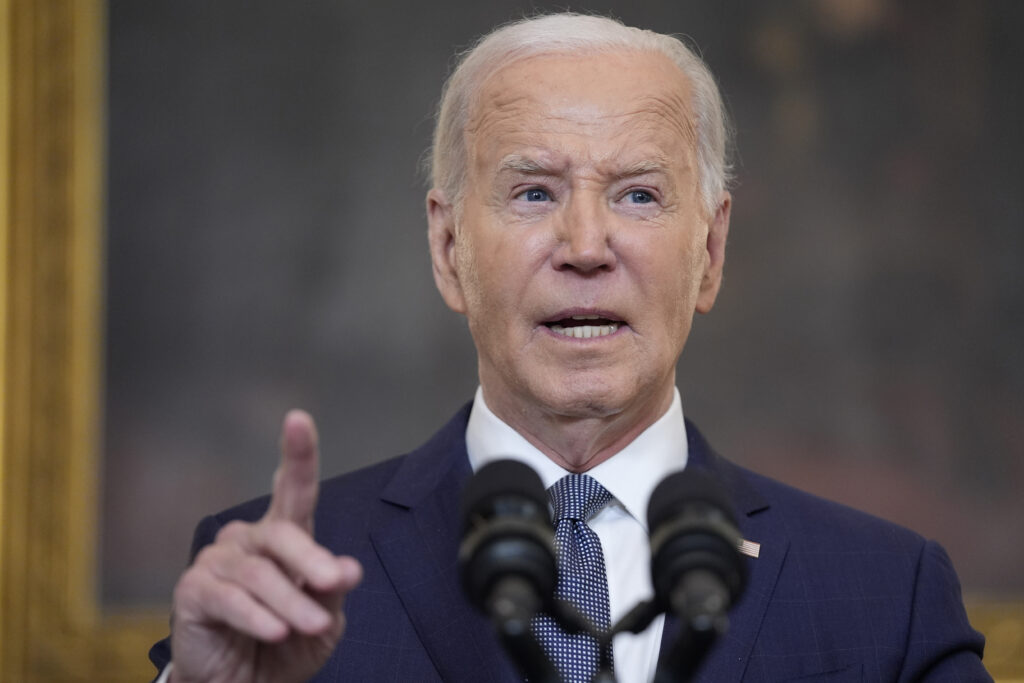
The FEC had lost an arguably more egregious, but similar case, in 2012. Supporters of U.S. Senator and 2008 Democratic presidential contender John Edwards had paid over a million dollars to Edwards’ mistress. Those funds were not reported as a campaign contribution. The government said they should have been. The government lost.
In this instance, it is difficult to see how private documents created in 2017 share a causal connection with federal election interference in 2016. Again, there’s no evidence that Trump had any expectation that the allegedly falsified documents would ever be seen by the public. In view of that fact, it strains credulity to say they were intended to promote his election, and even harder to say they were intended to promote his election by an unlawful means.
Trump’s lawyers should have focused almost their entire case on hammering the phantom “second crime.” Instead, they focused on discrediting Cohen and Daniels on whether the affair and payoff occurred. I’m sure this was at Trump’s insistence, but it was a mistake.
BENDING THE STATUTE OF LIMITATIONS
To reiterate, falsification of business records is normally a misdemeanor in New York. The statute of limitations – the time limit in which a prosecutor can bring a case after the alleged crime has been committed – is 2 years.
The charges were enhanced to a Class E felony, the lowest level felony under New York law. The statute of limitations for this Class E felony is 5 years.
The last alleged falsified record was created in December of 2017 when Trump caused the last check to be sent to Cohen for submitted legal invoices. The indictment against Trump came in March of 2023, more than 5 years later. Bragg succeeded in convincing Merchan that the statute of limitations should be tolled while Trump was serving as president.
Professor Gregory Germain of Syracuse University in New York has argued that the appropriate standard is 2 years and not 5. In an interview with Vox, Germain said it “is not clear whether the felony can stand when the misdemeanor is time barred” because the “felony statute requires showing that the misdemeanor was committed, since the felony is really a penalty enhancement on the misdemeanor.”
Even if Trump’s time in the Oval Office stayed the running of the statute of limitations, if the two-year limitation period applies, the March 2023 indictment could be time barred. However, COVID-era policies that temporarily suspended the running of statutes of limitation could serve to save the case.
RULE OF LAW & RESPECTING THE JURY
Many Trump naysayers have fallen back on tropes about the rule of law and respect for the jury’s verdict as a way to blunt criticisms of the prosecution and conviction. You will find no more ardent defender of the rule of law or our legal system than me.
The rule of law does mean no one — not even a former president — is above it. But it also means you do not single out political opponents for selective, dubious prosecutions on “Chinese menu” theories of liability.
Juries can also simultaneously be respected and questioned. A jury acquitted O.J. Simpson. Juries are made up of people who have to listen to judges. Judges are people. People are flawed. They make mistakes. They have biases. They do not become infallible when impaneled to hear a case, or when they don a black robe. Our legal system recognizes the potential for error with a system of appeals.
Moreover, the ability for the public to express concerns serves as accountability that prevents the operation of kangaroo courts.
It’s entirely possible to think that Donald Trump is boorish or to root against his bid for the White House, while still having serious concerns about how the legal system is being used against him and the threat to the ‘rule of law’ if people lose faith in our judicial system.






